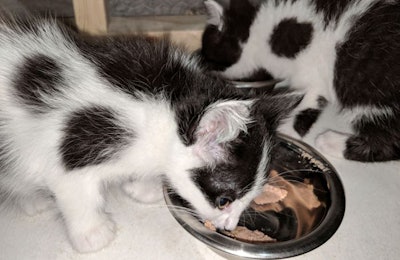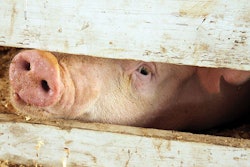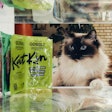
Leading U.K.-.based cat charity International Cat Care (iCatCare) launched their ‘Cat Care for Life’ program at the 2018 British Small Animal Veterinary Association Congress (BSAVA), and it may well have an impact on the pet food industry. While previously lifestages, and therefore lifestage-specific food, covered kitten, adult and senior, iCatCare has reclassified the lifespan of a cat into six lifestages – kitten, junior, adult, mature, senior and super senior. Aimed at both cat owners and veterinary clinics, the program's goal is to encourage owners to understand the lifestages of their cat and work with their vet to keep their cats as healthy as possible.
“For many years of a cat's life they often appear youthful and it can be very difficult to tell the age of an adult cat. The Cat Care for Life program has been designed to help cat owners keep their cat happy and healthy throughout all of their lives. The program has six lifestages, which are based on how cats mature and age both physically and behaviorally.” said Sarah Endersby, veterinary development manager at iCatCare. “These lifestages allow us to predict when certain changes might be occurring during the cat's life (although of course, each cat will mature and age at different rates, so the age ranges should be considered as a guide). There are also other considerations such as diet and nutrition, which will vary as the cat ages.”
The popularity and prestige of iCatCare as an organization, and the reach it has across the U.K., Europe, and beyond, means that cat-owning consumers will no doubt be looking more closely at the different lifestage foods on offer.
What does this mean for manufacturers?
The European Pet Food Industry Federation (FEDIAF) already has nutritional guidelines for pet food manufacturers to follow, and the nutritional needs of pets at different lifestages are detailed in the guidelines. For example, there is a maximum level of lysine allowed in puppy food, because an excess is shown to hinder healthy weight gain in puppies.
That means that members of FEDIAF (manufacturers from 18 different countries in Europe) that produce lifestage-specific food must comply with whatever the requirements are for that specific lifestage for the animal the food is designed for.













